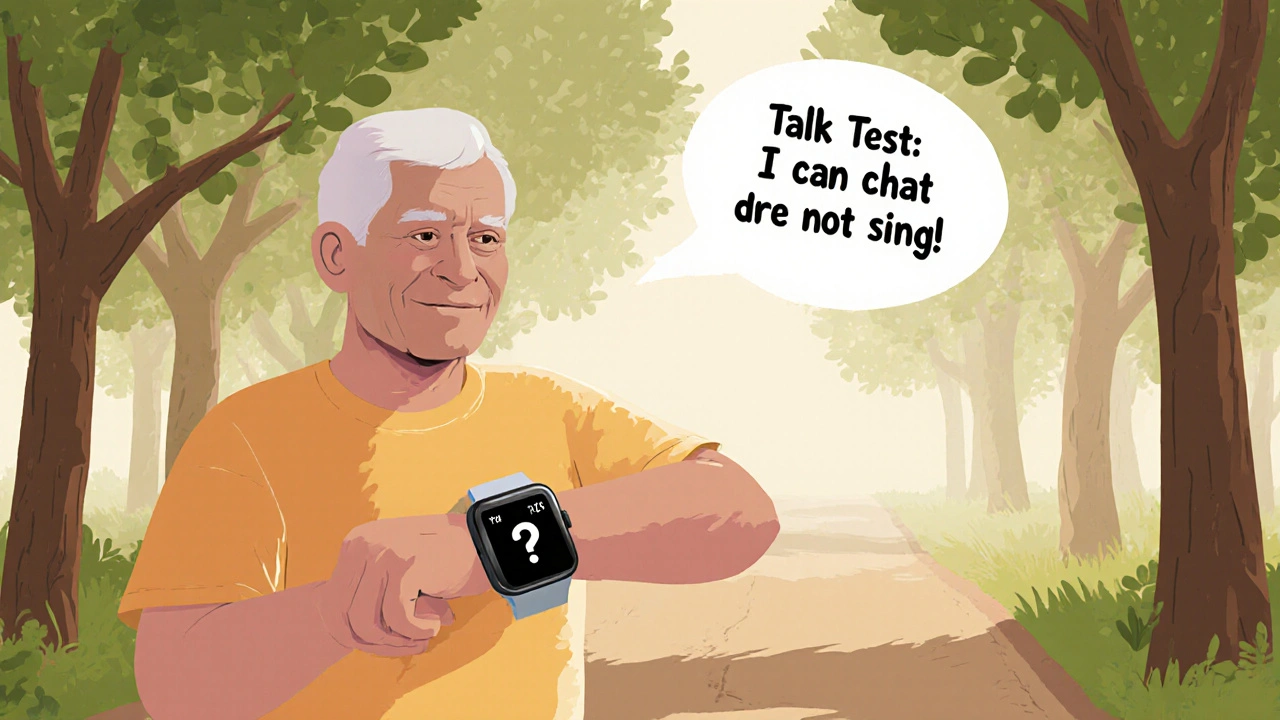
Beta-Blocker Exercise Intensity Calculator
This calculator uses the Borg Rating of Perceived Exertion (RPE) scale, the gold standard for beta-blocker users. Your target intensity should be 12-14 for moderate exercise. Avoid going above 16.
Your safe exercise intensity:
RPE: 12-14
Moderate intensity (can talk but not sing)
What this means:
- 12-13 Light effort: Walking at steady pace
- 14-16 Moderate effort: Walking uphill, light cycling
- 17+ Avoid unless cleared by doctor
Feeling exhausted during a walk, even when you're going slow? If you're on beta-blockers-medications like metoprolol, atenolol, or propranolol-you're not alone. About 33 million Americans take these drugs for high blood pressure, heart disease, or irregular heartbeats. But one common side effect? Fatigue during physical activity. It’s not laziness. It’s your body being held back by the medication.
Beta-blockers work by slowing your heart rate. That’s good for your heart, but it makes exercise harder. Your heart can’t speed up like it used to. So even if you feel like you’re trying, your body can’t deliver enough oxygen to your muscles. That’s why you get tired faster. Studies show your maximum heart rate drops by 20-30%. What used to be a 160 bpm peak might now cap at 120-130 bpm. That’s not a failure. It’s a pharmacological reality.
Why Your Heart Rate Monitor Lies to You
Most fitness trackers and gym machines are built for healthy people. They tell you to hit 70-85% of your max heart rate for a good workout. But if you’re on beta-blockers, that number is meaningless. Trying to reach an old target heart rate doesn’t mean you’re working harder-it just means you’re pushing too hard, risking dizziness, chest tightness, or worse.
Instead of chasing numbers, shift your focus to how you feel. The American Heart Association recommends using the tell test: if you can talk comfortably but not sing, you’re at the right intensity. If you’re gasping for air after three sentences, slow down. This simple rule works better than any device when your heart rate is artificially suppressed.
Replace Heart Rate With the Borg Scale
If the talk test feels too vague, use the Borg Rating of Perceived Exertion (RPE) scale. It’s a 6-to-20 scale where 6 means “no effort at all” and 20 means “maximal effort.” For most people on beta-blockers, aim for 12-14 on this scale for moderate exercise. That’s the level where you feel challenged but not overwhelmed.
Here’s what that looks like in real life:
- 11-13: Light effort-walking at a steady pace, breathing slightly harder than normal
- 14-16: Moderate effort-walking uphill, light cycling, feeling warm but still able to speak in full sentences
- 17-19: Vigorous effort-climbing stairs fast, brisk jogging-but most beta-blocker users should avoid this unless cleared by a doctor
Research shows that people who use RPE instead of heart rate feel more confident, stick with their routines longer, and report less fatigue over time. Dr. Martha Gulati from UCLA says this approach is the gold standard for patients on beta-blockers. It’s not guesswork-it’s science.
Adjust Your Workout Duration and Type
Since you can’t go as hard, you need to go longer. The American Heart Association suggests increasing weekly aerobic activity from 150 minutes to 180-188 minutes for the same heart health benefit. That means adding 10-15 minutes to your usual walk, or doing an extra short session during the week.
Interval training can help too. Instead of walking for 30 minutes straight, try 2 minutes of brisk walking followed by 1 minute of slow walking. Repeat that cycle five to eight times. A 2021 study in Circulation found this pattern improved endurance in beta-blocker users more than steady-state exercise. It gives your heart brief breaks, helping you recover between efforts.
Resistance training still works. Beta-blockers don’t weaken your muscles. But they do make you tired faster. So reduce the weight by 15-20% and keep the reps the same. Three sets of 10-12 reps with lighter dumbbells or resistance bands is safer and just as effective for maintaining strength.
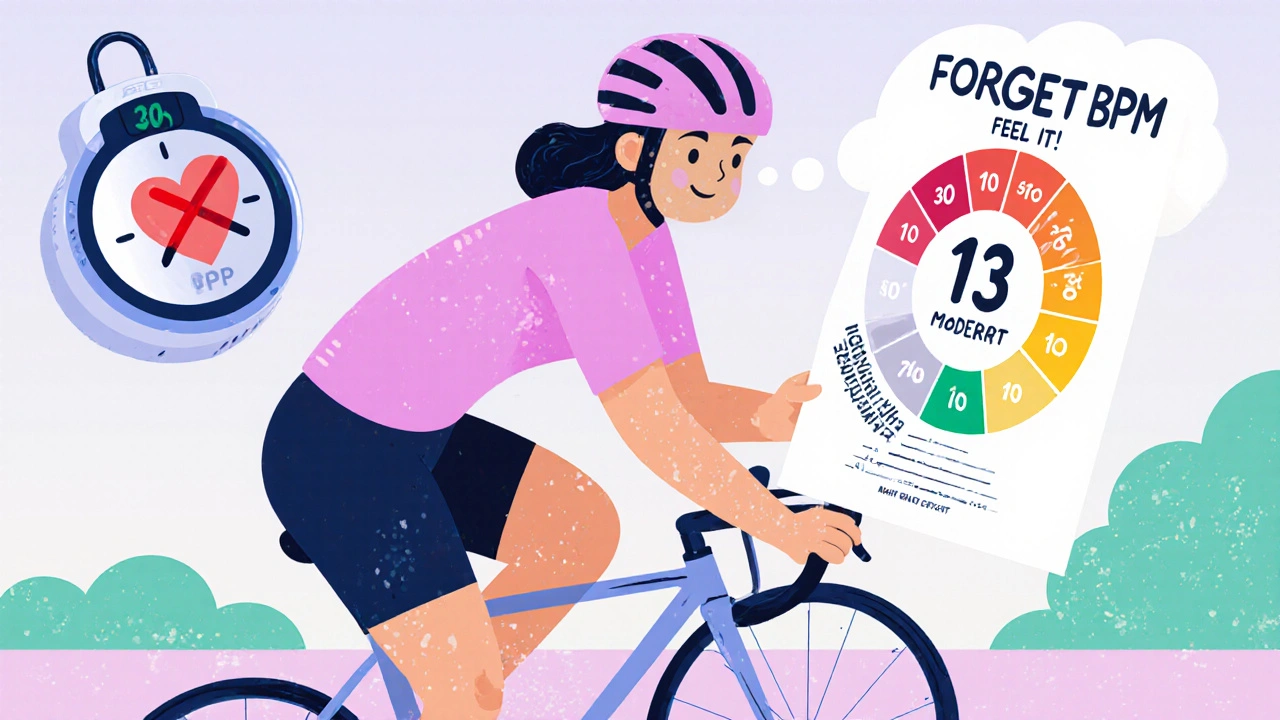
Watch Out for These Red Flags
Not all fatigue is normal. Some signs mean you need to stop and call your doctor:
- Resting heart rate below 45 bpm with dizziness or lightheadedness
- Systolic blood pressure dropping below 90 mmHg during exercise
- Extreme dry mouth or not sweating at all during mild activity-this can signal dehydration
- Chest pain, unusual shortness of breath, or nausea that doesn’t go away after stopping
These symptoms are rare but serious. About 5% of beta-blocker users experience dangerously low heart rates, and 3% see dangerous blood pressure drops during exercise. Don’t ignore them. They’re your body’s emergency signal.
How Other Medications Compare
Beta-blockers are the worst offenders when it comes to exercise fatigue. Other heart meds like ACE inhibitors (lisinopril) or calcium channel blockers (amlodipine) cause much less impact. Studies show they reduce oxygen use by only 3-5%, compared to 10-15% with beta-blockers.
Diuretics (water pills) can cause muscle cramps from low potassium, but they don’t limit your heart rate. So if you’re on multiple drugs, fatigue might come from more than one source. Talk to your doctor about whether switching to a cardioselective beta-blocker like nebivolol (Bystolic) could help-it’s shown to reduce fatigue by 8-10% compared to older versions.
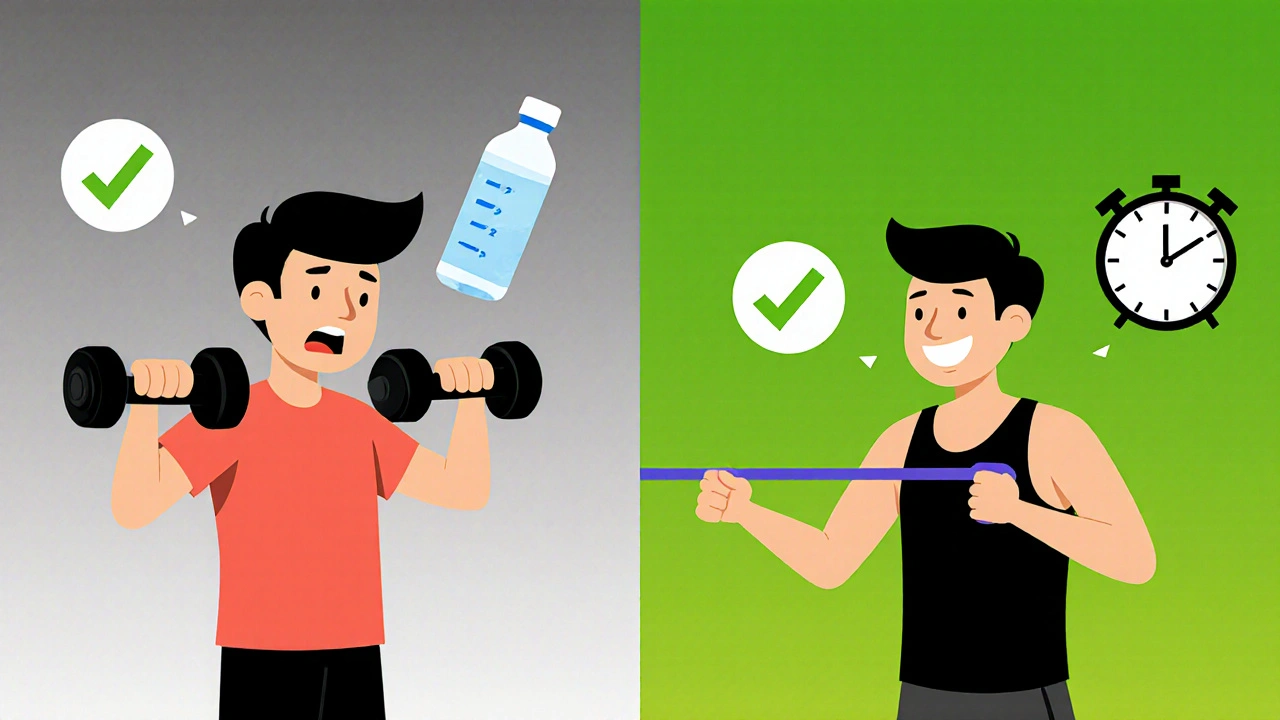
Real People, Real Results
On Reddit’s r/BetaBlockers community, users share daily wins:
- “On 100mg metoprolol, my 5K time went from 25:30 to 29:15-but I stopped chasing pace. Now I walk 45 minutes every morning using the talk test. I feel stronger than ever.” - CardioRunner87, June 2023
- “Switched from heart rate to RPE. Went from skipping walks to doing them daily. No more panic when my watch says I’m not ‘in zone.’” - HeartWarrior42, August 2023
Drugs.com data shows 67% of beta-blocker users report exercise fatigue. Propranolol users report it more often than metoprolol users. But those who adapted their routines? 82% said they regained confidence in movement.
What’s New in 2025
Technology is catching up. Apple Watch’s latest software (version 9.1, released September 2023) now includes beta-blocker-adjusted heart rate zones. It doesn’t replace medical advice, but it can help you stay within safer limits. Wearable devices are starting to recognize that not everyone’s heart responds the same way.
Cardiopulmonary Exercise Testing (CPET)-a lab test that measures how well your body uses oxygen during activity-is becoming more available. About 65% of U.S. hospitals with cardiac rehab programs now offer it. If you’re serious about optimizing your routine, ask your doctor if CPET is an option. It gives you personalized data, not guesses.
Final Takeaway: Move Smarter, Not Harder
You don’t need to run marathons or lift heavy weights to stay healthy on beta-blockers. You just need to move consistently, listen to your body, and ditch outdated rules. Your goal isn’t to hit a heart rate number-it’s to keep your heart strong, your muscles working, and your energy steady.
Start with a 15-minute walk. Use the talk test. Pay attention to your breathing. Add five minutes each week. Celebrate small wins. Fatigue doesn’t mean you can’t move. It just means you have to move differently.
Can I still do high-intensity workouts on beta-blockers?
High-intensity workouts like sprinting or heavy HIIT are generally not recommended for most people on beta-blockers. Your heart can’t respond quickly enough to meet the demands, which increases the risk of overexertion. Instead, focus on moderate-intensity activities like brisk walking, cycling on flat terrain, or water aerobics. If you want to try intervals, use a 2:1 work-to-rest ratio (e.g., 2 minutes walking fast, 1 minute slow) and always check in with your doctor first.
Why am I not sweating even when I’m working out?
About 12% of beta-blocker users report reduced sweating during exercise. This happens because the drugs blunt the body’s natural response to heat and effort. It doesn’t mean you’re not working hard-it means your body’s cooling system is dampened. This can lead to dangerous overheating or dehydration. Drink water before, during, and after exercise, even if you don’t feel thirsty. Watch for dry mouth, dizziness, or dark urine as warning signs.
Should I stop exercising if my heart rate is too low?
No-you shouldn’t stop exercising just because your heart rate is lower than before. That’s expected. But if your resting heart rate drops below 45 bpm and you feel dizzy, lightheaded, or faint, stop immediately and contact your doctor. Low heart rate alone isn’t dangerous; it’s the symptoms that matter. Use the Borg RPE scale or talk test to guide your effort, not your heart rate monitor.
Do beta-blockers affect muscle strength?
No. Beta-blockers don’t weaken your muscles. Studies show they don’t reduce muscle strength or endurance directly. What they do is limit your heart’s ability to deliver oxygen during activity, which makes you feel tired faster. That’s why you might feel like you’re losing strength-you’re actually just running out of energy sooner. You can still build and maintain muscle with lighter weights and more reps. Focus on form and consistency, not how heavy you can lift.
What’s the best time of day to exercise on beta-blockers?
Many people find morning workouts easier because beta-blockers are often taken in the morning, and their effects are strongest then. Exercising later in the day may feel better if you’re feeling sluggish in the morning. The key is consistency. Pick a time you can stick to, warm up longer (10-15 minutes), and avoid sudden bursts of activity. Avoid exercising right after meals or in extreme heat, as both can increase fatigue and strain.
Can I switch to a different medication to avoid exercise fatigue?
Maybe. Some beta-blockers, like nebivolol (Bystolic), cause less fatigue than older ones like propranolol. Other heart medications, such as ACE inhibitors or calcium channel blockers, have fewer effects on exercise capacity. But switching meds isn’t always possible-it depends on your heart condition. Talk to your cardiologist about your goals. If exercise is a priority, they may consider alternatives or adjust your dose. Never stop or change your medication without medical advice.
9 Comments
Chuck Coffer
November 21 2025
Wow. You actually read all that? Most people just glance at the title and assume it’s a wellness cult pamphlet. I’m impressed you didn’t scroll past it like the rest of the algorithm-fed zombies.
Marjorie Antoniou
November 22 2025
This is the kind of post that makes me feel seen. I’ve been on metoprolol for three years and I used to feel like a failure every time I couldn’t keep up on walks. The talk test changed everything. I don’t check my watch anymore. I just listen. And honestly? I feel more alive than I did when I was chasing heart rate numbers.
Andrew Baggley
November 22 2025
Let me tell you something - you’re not broken. You’re not lazy. You’re not failing. You’re just adapting. I was skeptical too until I tried the Borg scale. I started walking 20 minutes a day at a 13 on the scale. Now I’m doing 45. No fancy gear. No obsession with pace. Just me, my shoes, and the rhythm of my breath. It’s not about how hard you push - it’s about how consistently you show up. That’s strength.
Frank Dahlmeyer
November 23 2025
Listen, I’ve been through this. I was on propranolol for arrhythmia and I thought my fitness days were over. I tried everything - yoga, swimming, even tai chi - nothing worked until I stopped listening to the damn watch and started listening to my body. The interval method? Game changer. Two minutes fast, one minute slow. Five rounds. Feels like a workout without feeling like punishment. And now? I’ve been doing it for 18 months straight. No missed days. No guilt. Just progress. You don’t need to be fast. You just need to be steady.
Codie Wagers
November 25 2025
The entire premise of this post is a tragic capitulation to pharmacological determinism. You are not your heart rate. You are not your medication. You are the consciousness that observes both. To reduce human vitality to a Borg scale or a talk test is to surrender to the mechanistic worldview that has already colonized medicine. The body is not a machine to be calibrated - it is a phenomenon to be experienced. If you feel fatigue, sit with it. Do not replace one metric with another. Seek stillness. True strength is not in movement - it is in presence.
Paige Lund
November 26 2025
So… we’re supposed to walk longer because our heart can’t pump faster? Cool. So basically, we’re just walking to burn calories instead of burning out. Got it.
Reema Al-Zaheri
November 27 2025
Thank you for this detailed, evidence-based guide. I have been on amlodipine and metoprolol for five years, and I have always struggled to explain to my fitness friends why I can’t do HIIT anymore. The Borg scale and talk test are excellent, practical tools. I also appreciate the note about nebivolol - I will discuss this with my cardiologist. This post is a rare gem: informative, compassionate, and scientifically grounded.
Zac Gray
November 28 2025
For anyone still stuck on heart rate monitors - I get it. I was there. I used to stare at my watch like it owed me a better workout. Then I started doing my walks with my dog. She doesn’t care about bpm. She just wants to sniff the bushes and keep a steady pace. So I stopped chasing numbers. I started chasing her tail. And guess what? I started enjoying movement again. You don’t need a lab test or a fancy app. You just need to move - and not hate it. Try it. Just walk. No goals. No numbers. Just you, your breath, and the rhythm of your steps. That’s where the real healing begins.

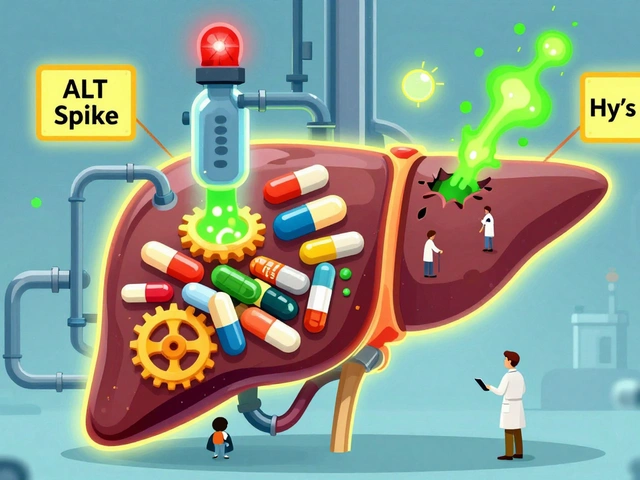



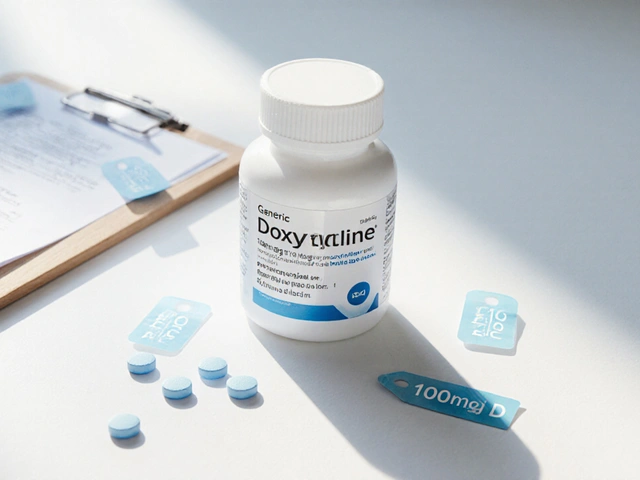
Sam Reicks
November 19 2025
so i heard beta blockers are just the govts way to make us weak so we dont rebel lol like why else would they make our hearts slow down unless they want us too tired to protest the new tax laws